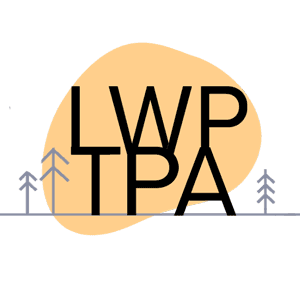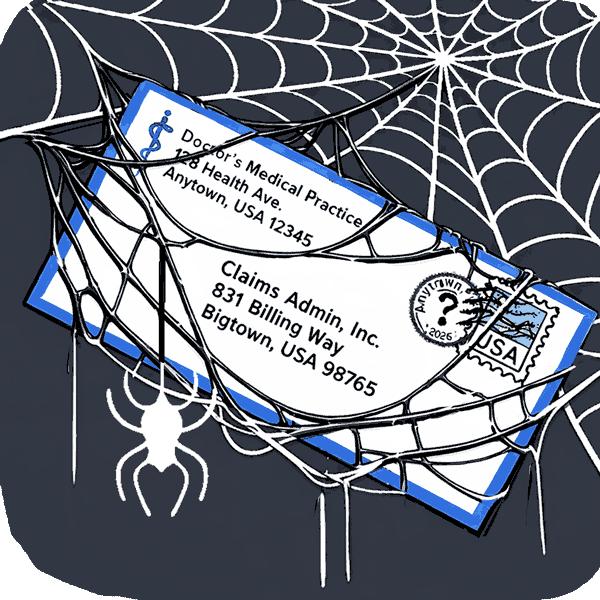LWP Non-Compliant 835 e-EORs: Untimely or Missing - 1,785 Audit Complaints
.png)
Third-Party Administrator (TPA) LWP Claims Solutions is in violation of California workers’ comp e-billing law. LWP’s persistent failure to honor state requirements places an undue burden on medical practices, and defeats the purpose of e-billing, which was designed to make workers’ comp more efficient and facilitate the treatment of injured workers.
Below, see the details of the latest batch of formal Audit Complaints daisyBill submitted to the Division of Workers’ Compensation, on behalf of our clients and all California providers who choose to treat injured workers.
LWP: Ignoring CA Law
To: XXXXXXXX@dir.ca.gov
Subject: #5 LWP Noncompliant 835 e-EORs: Untimely and Missing - 1,785 Audit Complaints
For California workers’ compensation EDI transactions the Division of Workers’ Compensation (DWC) issued a comprehensive Electronic Medical Billing and Payment Companion Guide that lists EDI requirements that providers and payers must follow.
LWP fails to adhere to the X12 835 requirements mandated by the DWC.
The data from daisyBill e-bills demonstrates that between 1/1/2022 and 7/31/2022, LWP failed to adhere to California workers’ compensation EDI requirements as follows:
EDI Noncompliance #1: For 141 accepted e-bills, LWP failed to timely electronically transmit providers compliant Explanation of Reviews (835).
EDI Noncompliance #2: For 1,644 accepted e-bills, LWP failed to electronically transmit providers compliant Explanation of Reviews (835).
Below we offer extensive evidence documenting how LWP ignores California EDI X12 835 (electronic EOR) requirements.
835 Untimely & 835 Missing Explained
DWC Rule 7.1 requires the claims administrator to electronically send an EOR to the provider using the X12 835 EDI standard within 15 working days of receipt of an e-bill. Per Chapter 7 Companion Guide: “The ASC X12N/005010X221A1 Health Care Claim Payment/Advice (835) Technical Report Type 3 is used by the payer to advise the provider of payment remittance and is also used to convey objections to the bill.”
A provider's receipt of an electronic EOR (835) is a critical component of electronic billing for the following three reasons:
- The electronic EOR closes the payment loop for a workers’ comp e-bill, and
- Automatically posts to the respective e-bill, thereby significantly reducing a provider's administrative burden of manually recording payment information to the respective e-bill, and
- Allows the gathering of important payment data about the claims administrator that heretofore was hidden in the paper EORs mailed to individual providers.
For the period 1/1/2022 through 7/31/2022, for 1,785 e-bills submitted to LWP, LWP failed to comply with the above noted DWC electronic EOR requirements. LWP compliantly returned an 835 to providers for only 1% of e-bills transmitted to LWP.
Attached are two CSVs containing the following information:
- CSV #1: 835s Untimely - The attached CSV lists 141 e-bills that providers submitted where LWP failed to timely return a mandated electronic EOR to the provider.
- [Bill] Transmission Date: Column L
- EOR (835) Compliance Due Date: Column V
- Column W: EOR (835) - The dates in this column are AFTER the EOR (835) Compliance Due Date
- Patient Name: Column AN
- Claim Number: Column AO
- CSV #2: 835s Missing - The attached CSV lists 1,644 e-bills that providers submitted where LWP failed to return a mandated electronic EOR to the provider.
- [Bill] Transmission Date: Column L
- EOR (835) Compliance Due Date: Column V
- EOR (835) Receipt Date: Column W - This column is BLANK because LWP Claims Solutions failed to send daisyBill an electronic EOR (835).
- Patient Name: Column AN
- Claim Number: Column AO
On 5/18/2022, daisyBill emailed XXXXXXXX, LWP Chief Information Officer, to report the lack of compliance. XXXXXXXX replied: “We hope to be fully compliant with bills going forward no later than 8/1.”
As of 8/17/2022, LWP has failed to rectify the 835 non-compliance.
Audit Complaint Details
This Audit Complaint Data submitted to the DWC represents a credible complaint and credible information of claims handling violations for 1,785 e-bills submitted to LWP by providers that treat injured workers.
Noncompliance: Claims administrator failed to send an electronic Explanation of Review (EOR) in the mandated ASC X12N/005010X221A1 (835) format, despite the claims administrator sending a 277 Acknowledgement accepting the Original Bill / Second Review Appeal.
DWC Rule 7.1 requires the claims administrator to electronically send an EOR to the provider using the X12 835 EDI standard within 15 working days of receipt of an e-bill.
Per California DWC Medical Billing and Payment Guide 7.2, any electronically submitted bill determined to be completed, not paid, or objected to within the 15 working day period, shall be subject to audit penalties per Title 8, California Code of Regulations section 10111.2(b)(10),(11).
daisyBill fights the good fight on behalf of workers’ comp providers. Reach out to see how we can help your practice obtain fast, correct reimbursement for treating injured workers.
LET’S TALK
DaisyBill provides content as an insightful service to its readers and clients. It does not offer legal advice and cannot guarantee the accuracy or suitability of its content for a particular purpose.

.png)


.gif)
.png)


